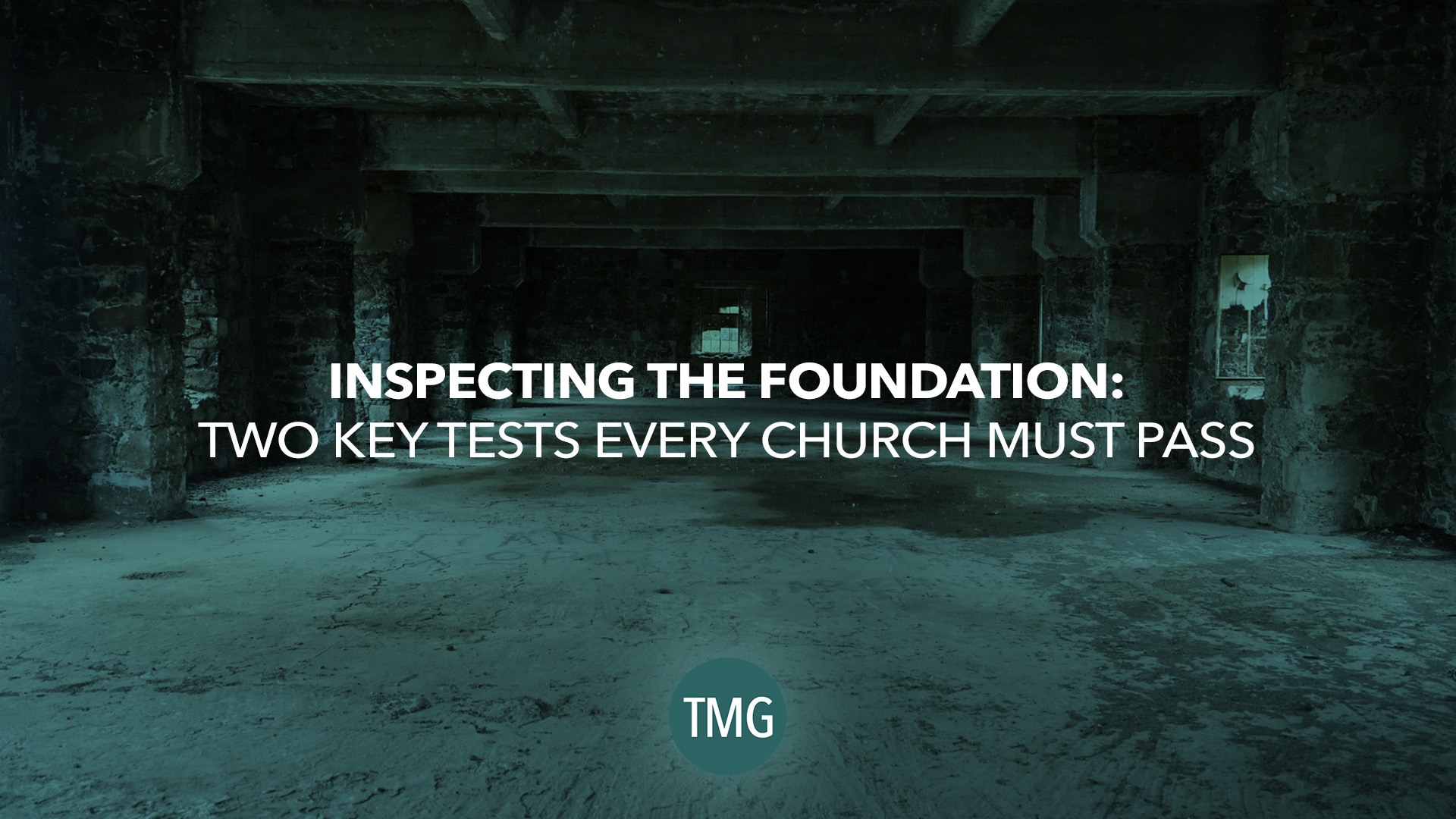Church Revitalization Podcast – Episode 49
You can watch the video version of the podcast on Facebook or YouTube.
“The kind of events that launch new growth curves result in substantial changes at the church’s heart and not just around its edges.” – Aubrey Malphurs
I’ve watched more home improvement shows than I care to admit. I’m especially a sucker for house-flipping shows. Inevitably, when the flipper buys an older home and starts pulling back the flooring, they find problems—the expensive kind. I don’t know how many episodes I’ve seen where a flipper’s budget gets blown in the first few days because of a foundation problem.
The only way the flippers uncovered a problem with the foundation was when they pulled the old flooring away. Everyone, including the flipper, assumed the house was on solid ground right up until the flaw was exposed.
A crisis doesn’t create problems; it exposes them.
When Covid-19 hit, most churches assumed that they were standing on solid, Biblical foundations for their ministries.
Great Commission? Check. Acts 2 community? Check.
For many churches—big and small–the flaws in these assumptions got exposed in the last few months.
As the Church moves forward into our post-COVID reality, we have to start with the foundation again. Shore it up. Make sure it’s solid. Otherwise, your church is putting new carpet over a caving floor.
Our free Post-COVID Church Checklist and our corresponding resources start with these foundational issues. No matter how big your church is, and no matter how long you’ve been in ministry, you’ll never grow beyond the need for a solid foundation: a biblical mission and values. When you ignore these founding principles, all of the strategies built atop them begin to topple.
Today, we don’t want to take for granted that everyone has the same depth of understanding about these foundational concepts. While it’s rare that pastors are entirely ignorant about mission and values, more typically, they get off track from the distractions of years of real-life ministry.
Occasionally, bad theology prevents churches from focusing on a biblical mission and values. However, even churches that profess the need for evangelism find themselves failing to live it out to any measurable degree.
Today, let’s pull back those floorboards and take a look at your church’s foundations.
To do that, we ask two critical questions.
Question 1: What is our mandate?
We’re getting back to basics here, but it’s vitally important. The purpose of all creation and humanity is to glorify Almighty God, but there’s a particular action that the Church of Jesus Christ is to be engaged in until his return. That action, our mandate of what we are to do, is found in Matthew 28:19-20, the Great Commission.
19 Therefore go and make disciples of all nations, baptizing them in the name of the Father and of the Son and of the Holy Spirit, 20 and teaching them to obey everything I have commanded you.
This two-part mandate, evangelism, and edification establish the church in its primary functions. As mentioned above, many churches, either by design or by accident, have lost sight of the evangelism mandate. This singular crucial element is the one-degree variation on the compass that sets a church on a trajectory towards inevitable decline and death, instead of continuously renewed, sustainable life one person at a time.
Question 2: What motivates us?
Life and ministry are complicated. At least that’s the way it feels. If your church is like many, your weekly work centers mostly around making another Sunday happen, and little else. Does it feel like God’s design? If not, you’re not alone. We need an established force that moves us to do what we ought to be doing. We find that force in Acts 2:41-47
41 Those who accepted his message were baptized, and about three thousand were added to their number that day.42 They devoted themselves to the apostles’ teaching and to fellowship, to the breaking of bread and to prayer. 43 Everyone was filled with awe at the many wonders and signs performed by the apostles. 44 All the believers were together and had everything in common. 45 They sold property and possessions to give to anyone who had need. 46 Every day they continued to meet together in the temple courts. They broke bread in their homes and ate together with glad and sincere hearts, 47 praising God and enjoying the favor of all the people. And the Lord added to their number daily those who were being saved.
How wonderful that this simple passage, a picture of the early church, begins with the result of Peter living out the Great Commission. Peter proclaimed the Gospel, and lives were changed. The church grew, and the believers were moved to act in a certain way. Let’s look at how they “did church.”
- They devoted themselves to the Apostle’s teaching (scripture)
- They devoted themselves to fellowship – not monthly potluck dinners but genuinely caring for one another.
- They devoted themselves to prayer
- They worshiped God
- They were generous in caring for those around them
- They proclaimed the Good News of the Christ
If we are motivated to do these things, we will see our churches thrive.
We’re here for you and praying for your success. If you’d like to connect with one of us to discuss how we can help your church get further, faster, and with less frustration in making disciples of Jesus, click here now.


A.J. Mathieu is the President of the Malphurs Group. He is passionate about helping churches thrive and travels internationally to teach and train pastors to lead healthy disciple-making churches. A.J. lives in the Ft. Worth, Texas area, enjoys the outdoors, and loves spending time with his wife and two sons. Click here to email A.J.

